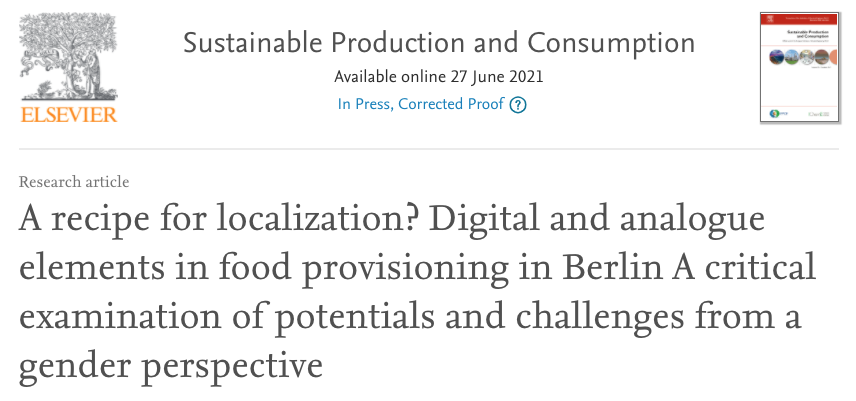Abstract
The discourse on food and sustainability seems omnipresent – both in analogue and digital spaces. Accordingly, more and more channels for sustainable food consumption have emerged in Berlin over the past years. Especially calls for the (re-)localization of food have grown louder. However, the celebratory discourse around the localized food system has been scrutinized from various perspectives. From a gender perspective in particular, questions arise on who possesses the necessary skills and takes on the additional workload that localization often entails. Thus, we firstly want to outline challenges, especially regarding gender relations. Secondly, we will touch upon the discussion of the digitalization of food provisioning and how this could foster localization. Finally, we want to use empirical data, gathered in Berlin to analyse whether or not in the two chosen food platforms digitalization functions as a transformative tool by helping to circumvent the pitfalls of (re-)localization of food especially in terms of gender relations. We found that the two cases – Marktschwärmer and Regional Boxes – at the same time offer potential but also pose risks for localization and gender relations. The interplay of digital and analogue elements influences food related labour in terms of knowledge, skills and workloads. Especially Marktschwärmer facilitates a strong sense of localization by interweaving digital and analogue elements: offering regional produce online and distributing it through personal meetings where additional information and knowledge is exchanged. However, assessing the overall work related to digitally enabled localized food provisioning, women still tend to be most involved.
Find the full article here.

